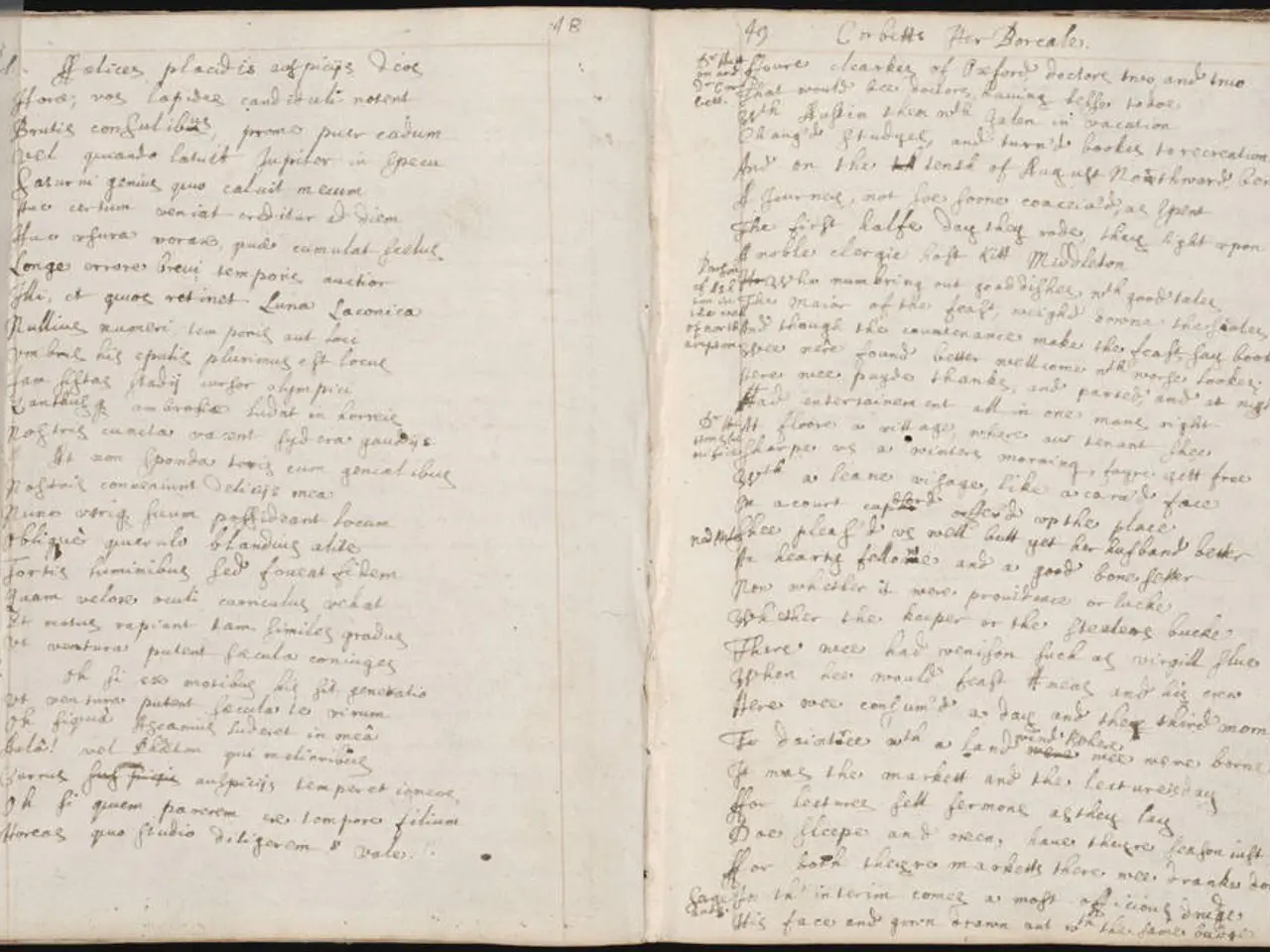Market Responses to Doubts Regarding Rachel Reeves's Continuity
In a tumultuous week for the UK government, Chancellor Rachel Reeves remains in her position despite mounting pressure and financial market unease following the dilution of the welfare reforms.
The UK's 10-year gilt yield rose to a level not seen since 9 June, reaching 4.67%, while the 30-year gilt yields hit a level not seen since 29 May, reaching 5.45%. These increases in borrowing costs followed remarks made by Prime Minister Sir Keir Starmer during Prime Minister's Questions, causing the pound to drop against both the euro and the US dollar.
The pound fell to a week-long low against the euro, reaching €1.15, and to a level not seen since the aftermath of President Donald Trump's tariff announcements against the UK, reaching $1.35 against the US dollar. These drops in the pound's value signalled concern among investors about potential changes within the Treasury.
The government's scrapping of the core money-saving component of its welfare bill, which had been intended to reduce spending in order to meet fiscal rules, added to the financial market's concerns. This move is now projected to cost money rather than save it, exacerbating the government’s fiscal challenges.
Despite the political pressure and market unease, Chancellor Rachel Reeves retains the Prime Minister’s confidence. Sir Keir Starmer has publicly supported her, emphasizing that her emotional moment during a tense Prime Minister's Questions session was linked to a personal matter rather than professional failings. He described Reeves as having done an excellent job, highlighting record inward investment and joint work on a broadly popular spending review.
However, some Conservative figures and critics, including shadow justice secretary Robert Jenrick, have called for her resignation, citing the welfare bill’s failure and loss of market confidence as reasons for her departure.
Ms Reeves has committed to self-imposed rules to reduce debt and balance the budget. A spokesperson for the prime minister attempted to quell speculation about the chancellor's future, affirming that Reeves is "going nowhere" and is integral to the government’s plans.
The rise in gilt yields occurred in the hours following speculation about Chancellor Rachel Reeves' future. This rise in borrowing costs, as indicated by the interest rate on both 10 and 30-year bonds, signalled concern among investors about potential changes within the Treasury.
The prime minister made clear to the chancellor that she has his "complete support" and remains integral to his project. Nevertheless, speculation around her future led investors to question the government's commitment to balancing the books.
In summary, despite the political and financial challenges, Chancellor Rachel Reeves retains the Prime Minister’s confidence and remains in her role after the welfare bill saga and her emotional Commons appearance. The situation, however, poses ongoing challenges for her and the government.
- The financial market's concerns about the UK government deepened, with the resignation of Chancellor Rachel Reeves being called for by some Conservative figures and critics, due to the failure of the welfare bill and the loss of market confidence.
- Amidst fierce politics and financial market unease, the rising gilt yields reflected investor concerns about potential changes within the Treasury, particularly in relation to the government's commitment to balancing the books amidst the welfare bill saga and the emotional Commons appearance of Chancellor Rachel Reeves.




